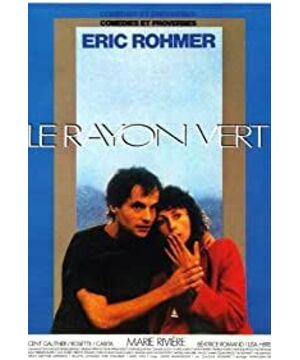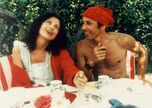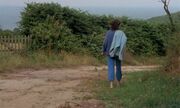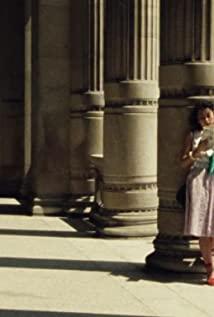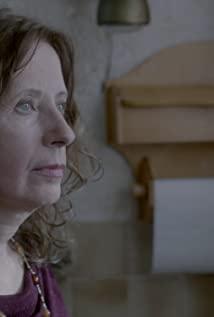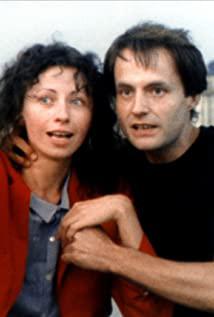It's a magical green, one that no painter can reproduce on a palette. Even in nature, in such a rich palette of plants, in the most transparent parts of the sea, you won't find such a subtle green. If there is green in heaven, it should be this green, and it may be the true ray of hope.
- Jules Verne A
long time ago, my film-loving friend hhtsiu recommended Rohmer's film "Green Light" and said I would love it. I didn't know anything about Rohmer at the time, and I just found the title to be a little crazy when I heard it. It has some dreamy, introspective, and beautiful atmosphere. In my imagination, it will be a movie full of inner drama and very delicate pictures.
It turned out not to be at all. What impresses me most about this film is the simple camera language and strong sense of reality, as well as Rohmer's surprisingly accurate grasp of women's psychology.
The background and plot of the story are very simple. It was July and August in France. Everyone was planning where to go on vacation, but the single woman Delphine could not find anyone to go with. The setting of the environment was so real that it instantly brought me back to the atmosphere of life I was once very familiar with. Every July and August, when everyone has no intention of working, the first thing they do when they meet is to ask each other: "When are you going on vacation?" "Where are you going on vacation?" "How was your vacation?" The office was empty It's empty, and even people who are still at work can't do anything serious because all the people you want to contact are not there, and the air smells of laziness.
Delphine's living conditions can probably make all older single women find more or less resonance. She is just an ordinary woman in her thirties. She broke up with her boyfriend for two years, but she is still alone. She felt slender and fragile. Some people can endure loneliness, she can't; some people can just find a company so as not to be lonely, she can't. There is desire and persistence in her heart, which has caused her biggest contradiction. Her life seemed to have no splendor, but she vaguely looked forward to happiness one day.
The film has no plot, just three round trips between Paris and the provinces for Delphine. From her relationship with the people around her, we can see that she is a little out of the way. She is a vegetarian and has no interest in any strenuous activity. Her long-term single life has made her more sensitive, she is afraid of being asked personal questions about her, and is always ready to defend herself. Yes, we see her always explaining: "I actually like to listen." "I'm very open to foreign things." "I'm not difficult to get along with." "I'm a vegetarian because I can't bear to see animals suffer. Hurt." "I have a boyfriend, but we don't live in the same city now." But she knew that all these self-defenses were powerless in the end, because her loneliness was obvious. So she has as many as five crying scenes throughout the film, sometimes in front of strangers, uncontrollably.
Even in such a situation, she still persisted. Her girlfriend taught her to strike up a conversation with strangers, but she didn't want to; strangers followed her on the streets of Paris, she dumped him as a scoundrel; the Swedish girl on the seafront flirted with two strangers in one fell swoop She became pretty, but she couldn't bear the meaningless chatter, got up and left abruptly - she wouldn't even make a gesture or said she couldn't.
The discussion about the green light by the group of old people in the second half of the movie is the "eye" of the movie. Delphine understood something from their words. "Green light" refers to a rather rare natural phenomenon, the light that is refracted in the sky at the moment when the sun disappears at sea level on the sea. Verne wrote Green Light in one of his love stories. He said that those who can see the green light will know the inner feelings of themselves and others (lire dans ses propres sentiments et dans les sentiments des autres). We can give Rohmer's green light various interpretations, but I prefer to understand it as the light of hope, which you can always see if you seek and wait. Delphine almost turns it into a ritual, sharing it with the man who is also a stranger at the end of the film.
Rohmer's camera language is plain, but not trivial. He pays great attention to color, and green has the upper hand throughout the film, but he also makes the heroine wear a red dress to activate the atmosphere (he himself later laughed in an interview and said that it was thankful that brightly colored clothes were still popular in those days). But this color is natural in the end, without much processing. His music is also used with great restraint and moderation. From beginning to end, the film is filled with almost all natural sounds, except that Delphine picks up the symbolic playing cards twice, and the green light at the end, the calm and gentle fugue sounds. I haven't seen many of his movies, so I don't know if this is his signature feature, but it feels like he was careful not to bring the director's obvious emotions into the movie.
I like his ramble but calm energy, in his films people are always talking, conversing, everyone, especially the protagonist, trying to make others understand themselves through language, convey information, regardless of the transmission Whether the information is understood by others, or even misunderstood. Each dialogue does not extend to the depths, but it can make people realize Delphine's personality a little bit. The actress Marie Rivière, who played Delphine, has also acted in several of Rohmer's other films, and like most French actresses, she is very good at expressing that emotionally rich, delicate and fragile temperament, such as the fine but fragile thin china .
I love Rohmer's penetrating understanding of women, in every detail we see Delphine's emotional twists and turns, her shyness, her unease, her frustration and her expectations. In the last scene, it was quite natural for her to take the initiative to approach the strange man. It was a sudden enlightenment after a hard wait.
Although we don't actually know, whether this man is really any different from other men.
2005-06-19
View more about Summer reviews


